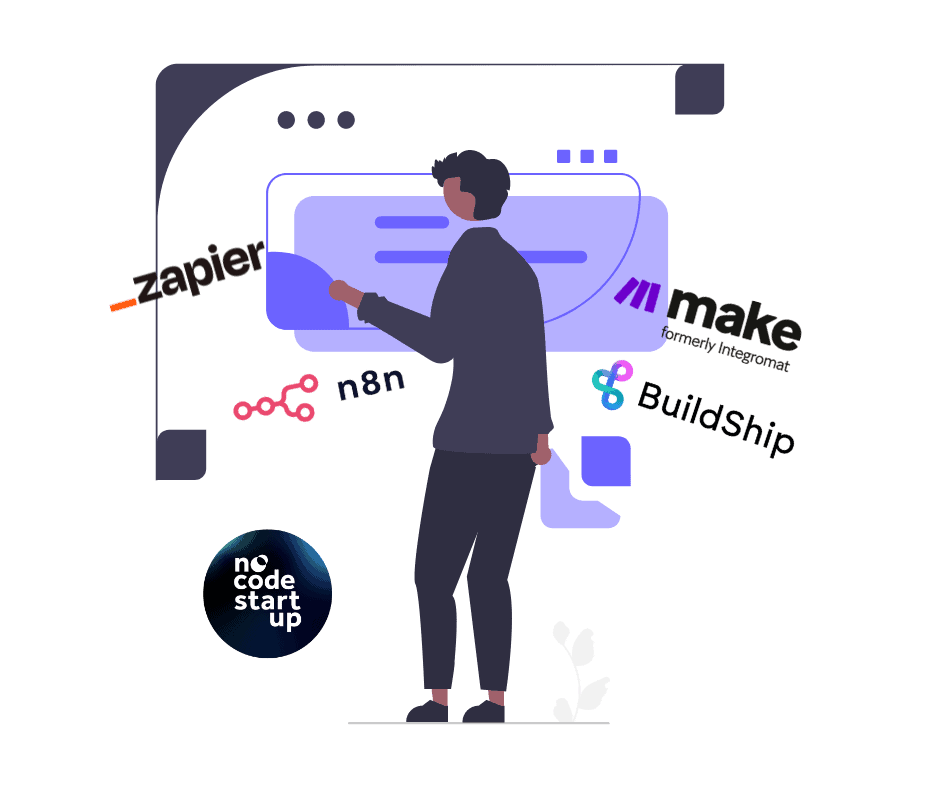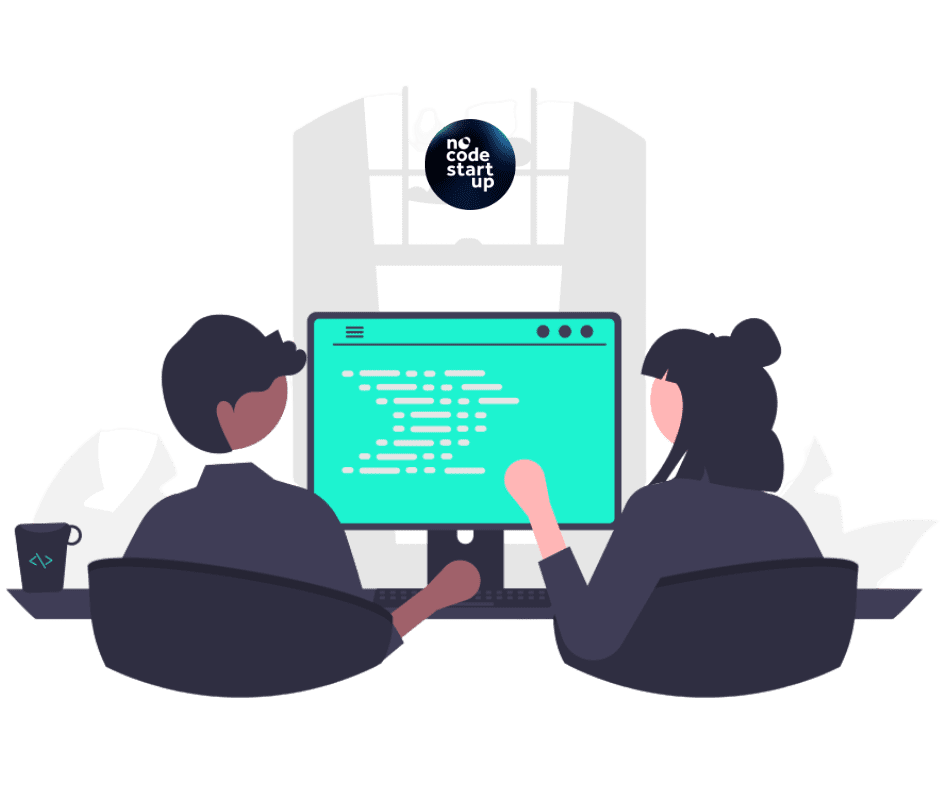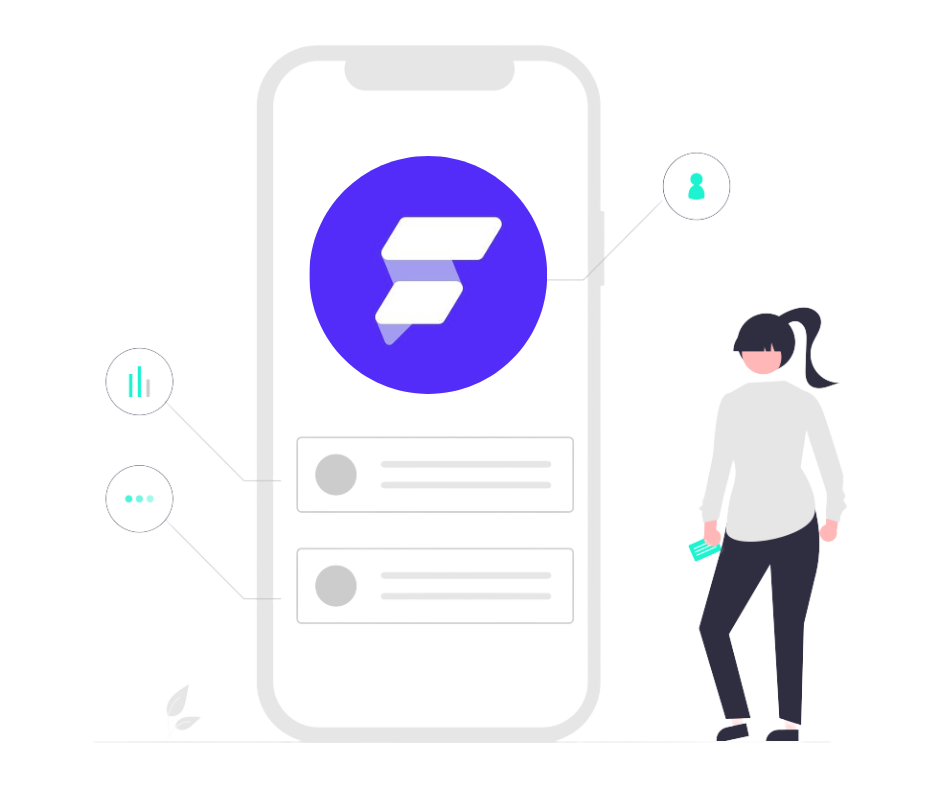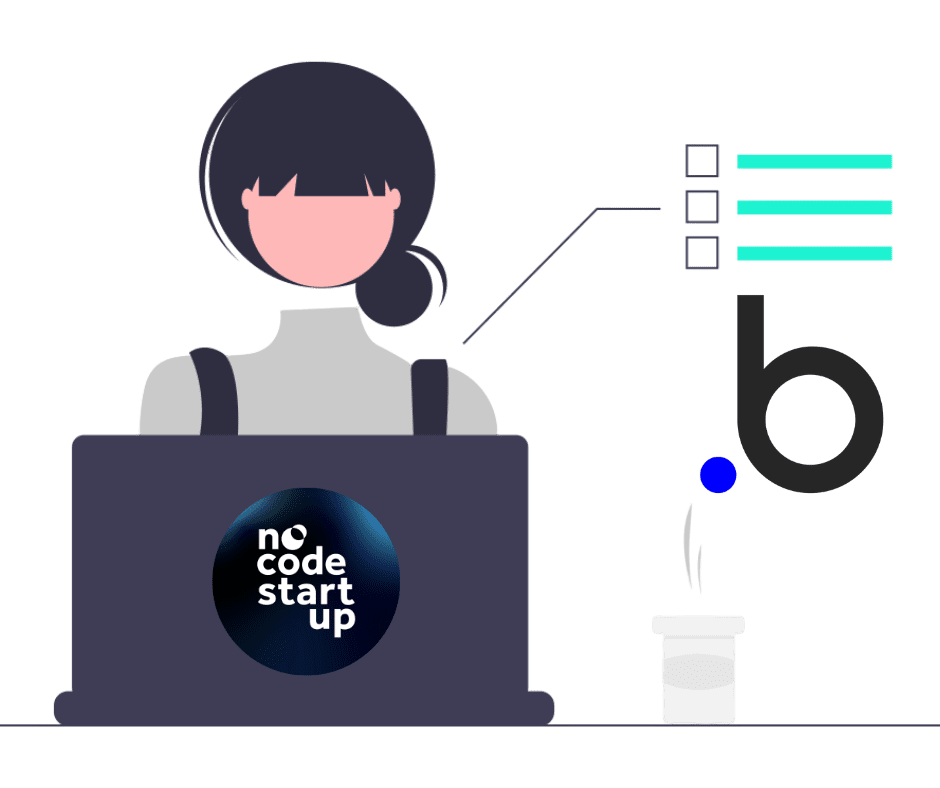Estimated reading time: 11 minutes
Imagine you have an amazing idea for developing an app and you can help many people around the world. Furthermore, you will learn about the ideal no-code tools to put this project into practice. The only problem is the number of demands and processes... It is impossible to handle everything alone and you find yourself facing a dilemma. What to do now?
The answer to your problem may be to create a App Development Company. With a trained team at your side, the chances of your application being successful and becoming a huge success increase. And you won't need to work twice as hard to achieve your goal.
But how to set up a apps development company in code? What does this agency need to have to stand out in the market and make money with this type of service? These are exactly the questions we aim to answer in this article.
Are you curious? So keep reading and discover everything you need to know to set up one apps development company in the code.
Table of Contents
What does a apps agency do in the code?

To begin with, let's clarify what a apps agency does in the code. Basically, it is a company that offers application creation services, using tools that do not require programming knowledge. These tools allow anyone to build custom, interactive and functional apps without having to write a line of code.
Thus, a apps no code agency can serve different types of clients who need quick, cheap and efficient solutions to your problems. See some examples of clients and services that can be offered:
- A doctor who wants to create an app for multidisciplinary healthcare teams;
- A businessman who needs a sales management app integrated with WhatsApp;
- A property manager who wants to create an app for communication and security in condominiums;
- A company looking for a solution for managing collaborative projects;
- A school that needs an app for online education.
This type of agency can stand out in the market and make money with this service if you know how to offer value to your customers. It is important to understand their needs, objectives and expectations, and deliver solutions that satisfy and surprise them.
What does a apps development company need to have?
Now that you've managed to understand what a apps no code company does in practice, we'll explain what it needs to be a great success and stand out in the market.
Let's go!
Online presence
Nowadays, it is possible for a company to be very successful, even if it operates completely remotely. This option proves to be very advantageous when taking into account rental costs, taxes and other expenses that can be saved.
In this case – just as in the past there was a concern with the location of a business – the ideal is to invest in an internet presence, so that your agency is discovered by online users. The tip is to understand where your audience is, but also vary this positioning, focusing on social networks, but also on a website that can be found on Google.
Market
The development market of apps is dynamic, competitive and constantly growing. It is essential that you know your target audience, your needs, desires and expectations.
We also recommend, first of all, analyze the competition, suppliers, partners and industry trends. Defining your positioning, differentiator and value proposition is the first step in creating your agency.
Legal requirements
One step that certainly should not be neglected is legal requirements. Any company must comply with legal requirements for its formation, operation and operation. To do this, your name, CNPJ, social contract and business license must be registered.
Furthermore, the entrepreneur must:
- Pay taxes, fees and contributions due;
- Follow labor, environmental, consumer and intellectual property laws.
Physical structure
If you choose to have a physical space for your company, you must consider that this location needs to be suitable for the size, field of activity and business model. Remember that this space needs to accommodate equipment, furniture, materials and employees. Other important points that need to be provided are:
- Good electrical network;
- Fast and stable internet;
- Security system;
- Space for team socialization.
Prepared team
The team of a apps development company must be prepared, qualified and specialized in no code. It may seem basic, but we want to make it clear that it is an essential point for the success of your company.
You need to have professionals who master the no-code tools that the company uses, who have knowledge of design, validation, publication and maintenance of apps.
Additionally, it is important to look for creative, innovative, proactive and collaborative people. Later on, we will explain how to train your team and achieve the long-awaited dream team.
Organization of the production process
This is a point where many companies fail, as they do not pay due attention to production processes. Organizing the steps, especially when we talk about developing apps in code, is a priority.
The production process must be efficient, effective and effective. To do this, you must define:
- Phases;
- Activities;
- Responsibilities;
- Deadlines;
- Costs;
- Indicators of your process.
There are several methodologies, tools and techniques that can optimize your process and guarantee the quality of your apps.
Investment and working capital
A company's investment and working capital are the financial resources necessary for its implementation, operation and growth. That is, it is the value that the company needs to acquire its fixed assets, such as equipment, furniture, materials and physical space.
This value also includes the payment of salaries, taxes, suppliers and customers. It is important to calculate your investment and working capital, and look for sources of financing that can make the business viable before going into practice.
Automation
We are talking about a apps company in the code and of course, we could not leave automation aside. But what does it mean?
Automation is the application of technologies that can replace or assist human activities, increasing the company's productivity, quality and competitiveness.
It is possible to use no code to carry out these automations, including. You can automate internal and external processes, such as:
- Financial management;
- Project management;
- Client management;
- Team management;
- Integration with other platforms;
- Publication in apps stores;
- Update of the apps.
Technical standards
Technical standards are the standards that regulate best practices in the sector, aiming for safety, quality and compliance of the apps. The company must follow national and international technical standards, such as:
- ISO;
- ABNT;
- IEEE;
- W3C.
Furthermore, it is important to be aware of and follow the specific technical standards of each platform, such as Apple, Google, Microsoft and Amazon.
Production process
The production process of a apps development company is the set of steps that transform an idea into an app. It may vary according to the methodology, tool and platform used by the company, but generally involves the following phases:
- Ideation: phase in which the company defines the concept, objective, target audience and features of the app;
- Prototyping: stage in which the company creates a visual and interactive model of the app, using the tools in the code;
- Validation: step in which the agency tests the app prototype with potential users, collecting feedbacks and suggestions for improvement;
- Publication: time to make the app available in app stores, following the technical standards of each platform;
- Maintenance: phase of monitoring the app's performance, security and satisfaction, fixing bugs, implementing updates and offering support to users.
Disclosure
If you want to start a business, you need to understand that marketing and communication are essential parts. It is essential to publicize the company as a way of promoting services, aiming to attract, win and retain customers. To do this, you can use communication channels such as:
- Social networks;
- Blogs;
- Podcasts;
- Webinars;
- Events;
- Adverts.
How to prepare a team to work in a apps development company?
Prepare a team to act effectively in a apps development company no code demands investment in training, motivation and integration of professionals. It is essential that the team participates in courses on the tools used by the company, such as:
- Bubble;
- FlutterFlow;
- web;
- Xano;
- Framer;
- Among others.
These courses cover concepts, features and best practices for each tool. That way, team members gain the technical skills needed to create high-quality applications.
Another important point is to promote creativity and innovation, this involves creating a environment that encourages experimentation, continuous learning and constructive feedback.
It is also important to encourage the presentation of new ideas and recognizing creative professionals helps to maintain a dynamic and motivating environment.
What are the advantages of opening a apps development agency?
Opening a apps development company can bring many advantages to anyone who wants to undertake a business in the technology sector. Some of these advantages are:
Lower investment capital
An app development agency does not require significant initial capital to start operations. The costs associated with equipment, materials and physical space are relatively low.
Furthermore, the no-code tools allow the company create apps without needing to hire programmers, which reduces labor costs.
Shortest turnaround time
Application development companies can obtain a faster return on investment. This is due to the shorter time required to develop, validate and publish applications compared to other types of software.
Additionally, the company can implement recurring revenue models such as payments and subscriptions, commissions or advertisements, generating a constant source of income.
Shorter production time
For these organizations, it is also possible deliver projects in shorter deadlines compared to other software companies. Using no code tools allows you to create applications quickly, easily and intuitively, without the need for extensive coding. The adoption of agile methodologies also favors continuous delivery and agile adaptation to changes.
Expanding market
Application development agencies have the opportunity to capitalize on a growing market, due to the continuous increase in demand for applications, both from consumers and companies.
Furthermore, the company can serve various segments, such as health, education, entertainment and commerce, and develop innovative and personalized solutions for its customers.
Start programming now with no-code
Interested in learning no-code to finally give the start in your company? You can start now with No-code Start-up!
Take code training and earn by developing apps. With the FlutterFlow course, for example, you learn how to create applications for iOS and Android without the need to use code.
What are you waiting for? Start your no-code journey and surf this revolution with us!






